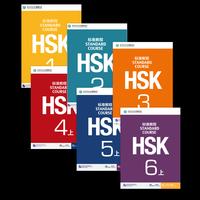Takeawalk散步
Dar un paseo
Passeggiata
散歩をする
산책하기
Maak een wandeling
Wybierz się na spacer
Dar um passeio
Прогуляться
Yürüyüşe çıkın
Прогуляйся.
Take a walk 散步
Takeawalk Spaziergang
Take a walk
Takeawalk se promener
一天 晚上 , 一个 男孩 和 一个 女孩 在 公园 散步 。
Eines Abends, ein Junge und ein Mädchen spazieren im Park.
One evening, a boy and a girl are walking in the park.
Un jour, le soir, un garçon et une fille se promènent dans le parc.
男孩 说 :”今天 晚上 的 天气 不太 好 ,有点儿 冷 ."
garçon|dit|aujourd'hui|ce soir|particule possessive|temps|pas très|bon|un peu|froid
Junge|sagt|heute|Abend|possessives Partikel|Wetter|nicht sehr|gut|ein wenig|kalt
boy|said|today|evening|attributive marker|weather|not very|good|a bit|cold
Der Junge sagt: "Das Wetter heute Abend ist nicht so gut, es ist ein bisschen kalt."
The boy says: "The weather tonight is not very good, it's a bit cold."
Le garçon dit : "Le temps ce soir n'est pas très bon, il fait un peu froid."
”
"
"
"
女孩 说 :”是的 ,我 也 觉得 今天 晚上 有点儿 冷 。"
|||||думаю||||
fille|dit|oui|je|aussi|pense|aujourd'hui|ce soir|un peu|froid
Mädchen|sagt|ja|ich|auch|fühle|heute|Abend|ein wenig|kalt
girl|said|yes|I|also|feel|today|evening|a bit|cold
Дівчина відповіла: "Так, я теж думаю, що сьогодні трохи холодно.
Das Mädchen sagte: "Ja, ich finde es heute Abend auch ein bisschen kalt."
The girl said: "Yes, I also feel a bit cold tonight."
La fille dit : "Oui, je pense aussi qu'il fait un peu froid ce soir."
”
"
"
"
说完 后 ,男孩 看 了 看 自己 的 衣服 。
après avoir fini de parler|après|garçon|regarder|particule d'action complétée|regarder|soi-même|particule possessive|vêtements
nachdem gesagt|nach|Junge|schauen|Vergangenheitsmarker|schauen|selbst|possessives Partikel|Kleidung
after speaking|after|boy|look|past tense marker|look|own|attributive marker|clothes
Сказав это, мальчик посмотрел на свою одежду.
Після цього хлопчик подивився на свій одяг.
Nachdem er das gesagt hatte, schaute der Junge sich seine Kleidung an.
After saying that, the boy looked at his own clothes.
Après avoir dit cela, le garçon regarda ses propres vêtements.
这时 女孩 心里 很 高兴 ,她 以为 男孩 要 把 自己的 衣服 给 她 穿 。
||||||||||свою||||
à ce moment-là|fille|dans son cœur|très|heureuse|elle|pensait|garçon|allait|particule|ses propres|vêtements|donner|à elle|porter
zu diesem Zeitpunkt|Mädchen|im Herzen|sehr|glücklich|sie|dachte|Junge|will|partikel|eigene|Kleidung|geben|ihr|anziehen
at this time|girl|in the heart|very|happy|she|thought|boy|want|to|own|clothes|to|her|wear
La chica estaba tan contenta que pensó que el chico le iba a dar su ropa para que se la pusiera.
A rapariga ficou tão contente que pensou que o rapaz lhe ia dar a sua roupa para vestir.
В этот момент девочка была очень счастлива, она думала, что мальчик собирается отдать ей свою одежду.
Дівчинка так зраділа, що подумала, ніби хлопчик збирається віддати їй свій одяг.
In diesem Moment war das Mädchen sehr glücklich, denn sie dachte, der Junge würde ihr seine Kleidung geben, damit sie sie anziehen kann.
At this moment, the girl was very happy; she thought the boy was going to give her his clothes to wear.
À ce moment-là, la fille était très heureuse, elle pensait que le garçon allait lui donner ses vêtements à porter.
但是 男孩 说 :”还好 我 今天 穿 了 两件 衣服 。"
mais|garçon|dit|ça va|je|aujourd'hui|porter|particule d'action complétée|deux|vêtements
aber|Junge|sagt|ganz gut|ich|heute|tragen|past tense marker|zwei|Kleidungsstücke
but|boy|said|fortunately|I|today|wear|past tense marker|two pieces|clothes
Mas o rapaz disse: "Ainda bem que hoje vesti dois vestidos".
Но мальчик сказал: «К счастью, сегодня на мне две вещи.»
Але хлопчик сказав: "Добре, що я сьогодні вдягнув дві сукні.
Aber der Junge sagte: "Zum Glück habe ich heute zwei Kleidungsstücke angezogen."
But the boy said: "Fortunately, I wore two pieces of clothing today."
Mais le garçon a dit : "Heureusement, j'ai porté deux vêtements aujourd'hui."
”
"
"
"
SENT_CWT:AsVK4RNK=2.89 PAR_TRANS:gpt-4o-mini=1.06 SENT_CWT:AsVK4RNK=2.93 PAR_TRANS:gpt-4o-mini=3.01 SENT_CWT:9r5R65gX=2.4 PAR_TRANS:gpt-4o-mini=1.7 SENT_CWT:AsVK4RNK=2.28 PAR_TRANS:gpt-4o-mini=2.19 SENT_CWT:AsVK4RNK=2.83 PAR_TRANS:gpt-4o-mini=1.79 SENT_CWT:9r5R65gX=3.53 PAR_TRANS:gpt-4o-mini=1.27 SENT_CWT:AsVK4RNK=2.49 PAR_TRANS:gpt-4o-mini=0.91 SENT_CWT:AsVK4RNK=3.73 PAR_TRANS:gpt-4o-mini=1.76 SENT_CWT:AsVK4RNK=2.16 PAR_TRANS:gpt-4o-mini=1.35 SENT_CWT:9r5R65gX=2.05 PAR_TRANS:gpt-4o-mini=1.53
en:AsVK4RNK en:AsVK4RNK de:9r5R65gX en:AsVK4RNK en:AsVK4RNK de:9r5R65gX en:AsVK4RNK en:AsVK4RNK en:AsVK4RNK fr:9r5R65gX
openai.2025-02-07
ai_request(all=13 err=0.00%) translation(all=10 err=0.00%) cwt(all=65 err=16.92%)
